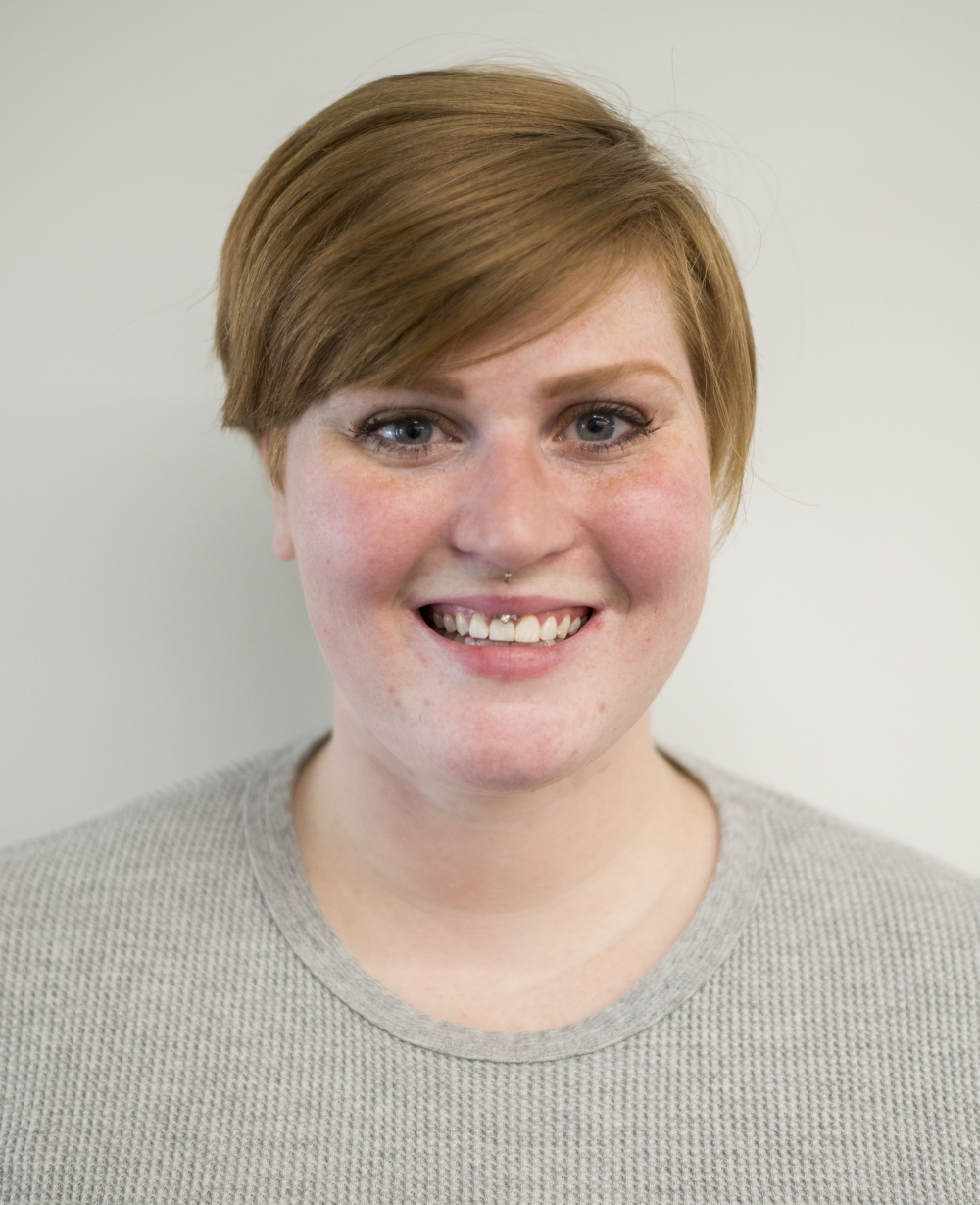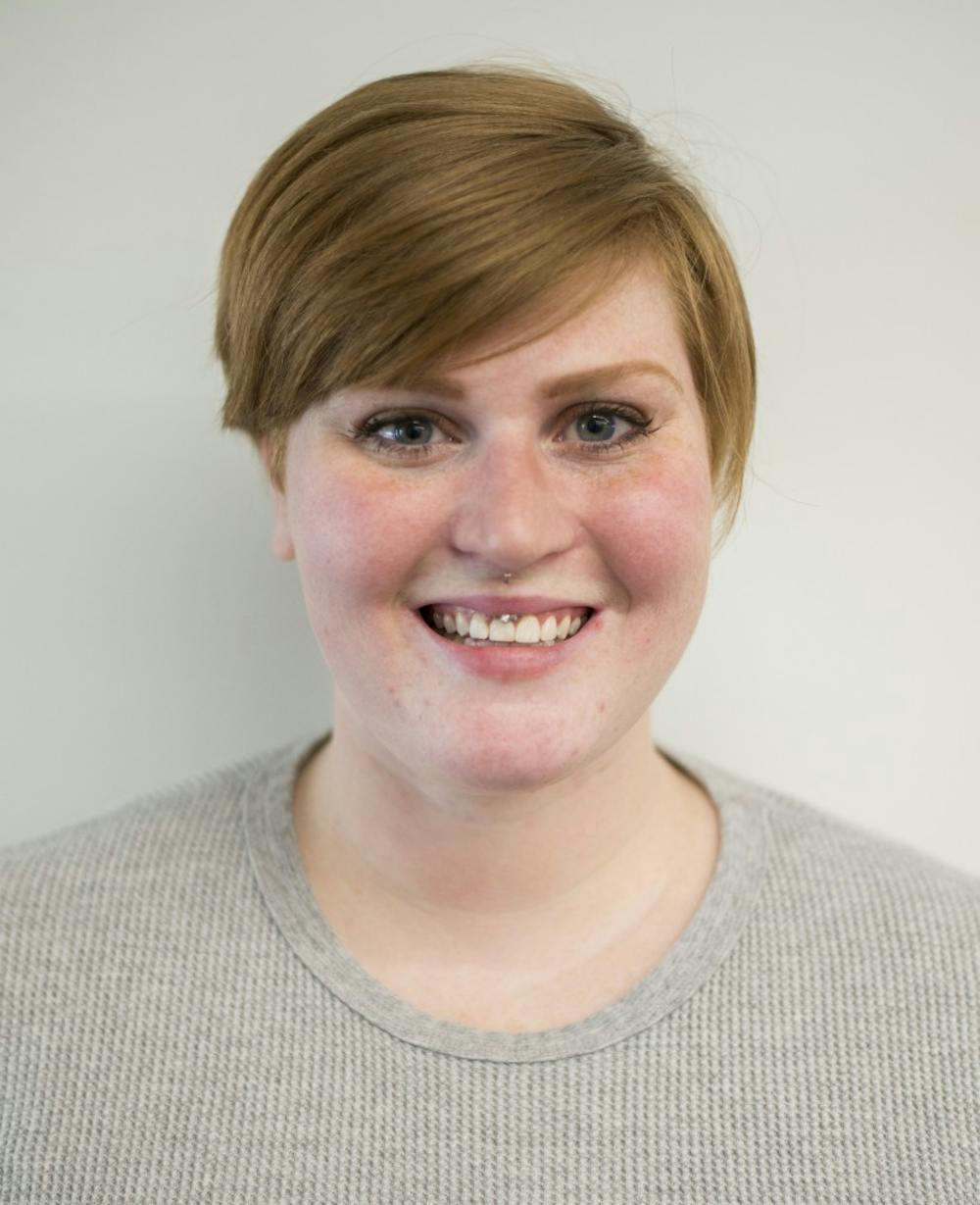Laura Arwood is a senior telecommunications and journalism news major and writes "Knock on ArWood" for the Daily News. Her views do not necessarily agree with those of the newspaper. Write to Laura at llarwood@bsu.edu. For an extended version of this article, check out Laura's blog.
Editor's note: This article is the second in a series covering the topic of eating disorders.
In order to help anyone, I think it’s important to define what we consider an eating disorder, because it’s impossible to have a mission without an objective.
Anorexia Nervosa (aka anorexia, or restricting): Persistent restriction of caloric intake leading to significantly low body weight; An intense fear of weight gain, persistent behavior that interferes with weight gain; Dissatisfaction with one’s body, obsession over one’s body.
Bulimia Nervosa (aka bulimia, binging and purging): Recurrent periods of binge eating (eating more than any person would “normally” eat in a period of 2 hours) or feeling out of control when eating; Recurrent methods of purging said “binged contents” through vomiting, laxative abuse, excessive exercise or restricting; The binge and purge cycle must happen at least once a week for three months straight; Abnormally focused on weight as a means of self-evaluation.
 |
|---|
Binge Eat Disorder (aka BED): Recurrent episodes of binge eating; Feeling out of control when eating; Eating far past the feeling of “fullness;” Much more severe than overeating.
There are several other eating disorders and I strongly suggest everyone familiarize themselves with all types of eating disorders.
Why is it important to inform yourself? Because the most common diagnostic criteria is based on weight, which is misleading. If you’re anorexic, you’re not really anorexic until you’re being force-fed with a tube. If you’re bulimic, you’re not really bulimic until your teeth are falling out and your pants are falling off. If you’re BED, you’re not BED until you can’t fit into a car.
It’s the same standard that a married couple ought not divorce without exhausting every resource, until you hate each other, until the only thing you want from that marriage is blood.
It’s paramount that the ED recovery community begins to accept eating disorders don’t always come with a doctor’s orders to gain weight.
It’s also paramount that everyone reading this understands I had to beg to get accepted into an inpatient treatment center for bulimia because I was just too fat.
Read more from Arwood: Too fat for an eating disorder
Trigger warning:
I started binging and purging when I was 14. My mom still says, “No, you didn’t.” Because it’s something she would have noticed, right? But I was just trying to lose weight... just trying to get "there."
Where? The Utopia that I assumed all thin girls inhabit. Aren’t all of you size 4-and-unders over the moon? All the time? You never have to feel insecure, you can wear bikinis without sucking it in, guys look at you as girlfriend material instead of girl friend material, right?
So, my eating disorder started as the chubby swimmer girl trying to get fast, so my well-intentioned yet horribly misguided family members bought me diet books at the ripe age of 11.
My eating disorder started by choosing frozen yogurt instead of ice cream, grilled instead of crispy, sweet potatoes instead of mashed potatoes.
My eating disorder morphed into taking vitamins for breakfast, a salad for lunch, chlorinated water for dinner. Just the chubby swimmer trying to get fast.
My eating disorder morphed into my own little secret. Just me and Ed. I swear Ed was so strong I recognized his voice in my head, “It’s okay, you can eat this. We’ll purge it later.” We were a team. I always felt safest when I was locked in the bathroom.
Always a little loss, a little gain. I dropped and picked up 50 pounds so many times, little lines are carved into the edges of my breasts where my skin screamed for mercy from this tortuous 18 year old.
I would equate starvation to success. No one ever asked me when I ate last or if I was okay because what I was doing was to be commended. Just trying to get to Utopia.
The only time I admitted to bulimia was when I went into rehab for alcoholism and drug addiction. Up until that very moment, I thought I was dieting.
Two years later, I’m purging over 30 times a day, calling every treatment center I can Google. None of my friends asked me if I was okay because I didn’t appear to be anything but healthy.
I’m a pro bulimist. I know all of the perfect gas stations. I know the best laxatives. I know jelly beans and no drink comes up quick, that pizza and McDonald’s is an easy purge.
But when I called a treatment center?
“Well, we can offer you an Intensive Outpatient Program, but I’m afraid your BMI is far too high.”
“Oh, well you can see our outpatient therapist.”
Or, my personal favorite, “We only accept patients with a history of substance abuse if they’ve been sober for five years.”
Okay.
I went to the Focus Center for Eating Disorders in Chattanooga, Tenn. After over a year of searching, this is the only treatment center I have found that would accept me. Inpatient treatment undoubtedly saved my life, and although I was only hospitalized for 31 days, I am forever indebted to the ONE treatment center that accepted me at 230 pounds.
Eating disorders are not about the exterior – they are about the interior. There is no such thing as too fat or too thin for an eating disorder. Trash this stereotype. It is killing people.





